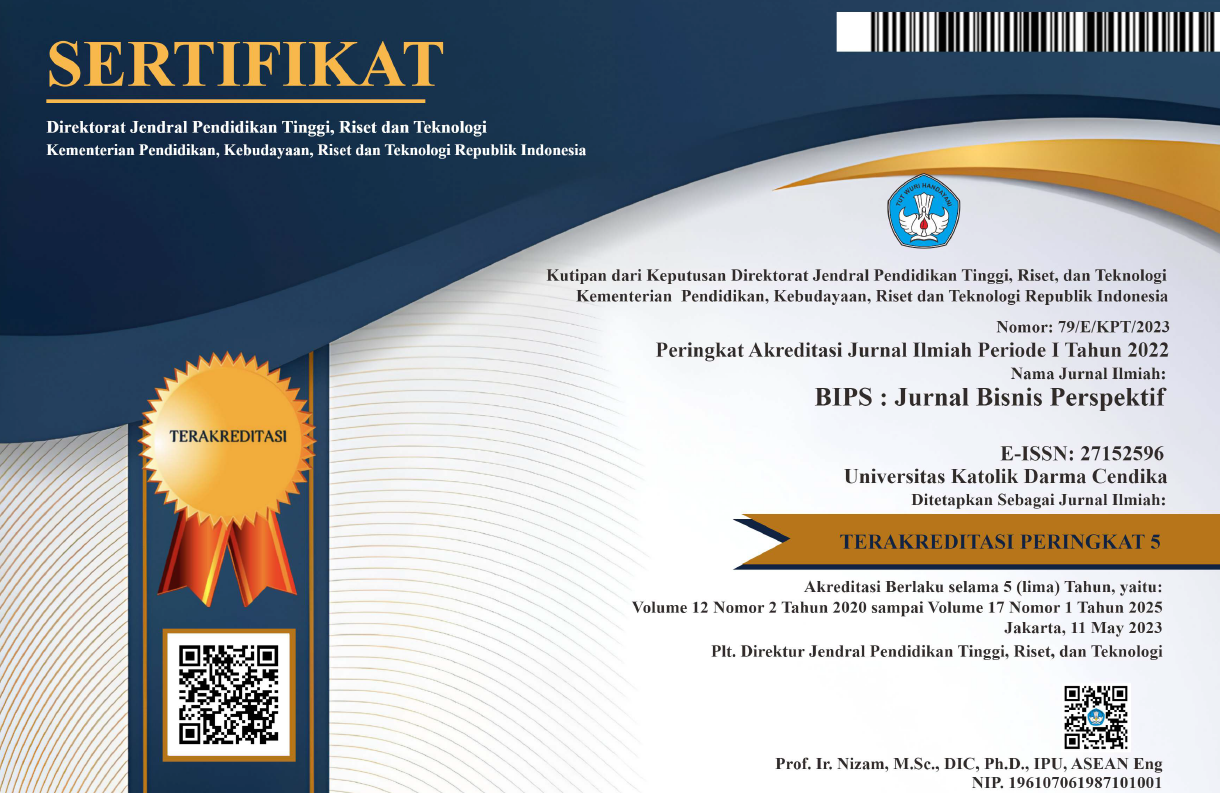Efektivitas Sosialisasi Pajak Dan Sanksi Perpajakan Terhadap Kepatuhan Wajib Pajak Wonocolo Surabaya
DOI:
https://doi.org/10.37477/bip.v15i1.392Keywords:
tax socialization, tax sanctions, taxpayer complianceAbstract
Taxpayer compliance is a key to the success of meeting a country’s revenue target. The existence of taxes paid by taxpayers on a regular basis can help the state in carrying out sustainable development and the implementation of other state activities. To establish taxpayer compliance in paying taxes, the government conducts tax socialization to the public as taxpayers. The existence of tax socialization aims to provide direction and explanation of the obligation to pay taxes and how to pay taxes. In addition, the existence of tax sanctions applied aims to keep taxpayers in compliance with existing tax regulations and provide a deterrent effect to taxpayers who are late or do not pay taxes. The purpose of this study is to analyze the effectiveness of tax socialization and tax sanctions on taxpayer compliance in Wonocolo Surabaya residents. The data collection technique used in this research is the interview technique. The research population is the Pratama Wonocolo Tax Service Office Surabaya with a total sample of 140 respondents. The research analysis technique used multiple regression analysis with PLS. The testing technique used in this research is testing the outer model which includes the convergent validity, discriminant validity, composite reliability, Cronbach’s Alpha test and inner model testing and hypothesis testing. The results of this study conclude that tax socialization and tax sanctions have a significant positive effect on taxpayer compliance.
Downloads
Published
How to Cite
Issue
Section
License
Authors publishing in this journal agree to the following terms:
- The author retains copyright and grants the journal rights of first publication with the work simultaneously licensed under a Creative Commons Attribution ShareAlike License License that allows others to share the work with acknowledgment of the author's work and initial publication in BIP's: Journal of Business Perspectives.
- Authors may include separate additional contractual arrangements for non-exclusive distribution of the published version of the journal (e.g., submit to an institutional repository or publish in a book), with an acknowledgment of the original publication in this Journal.
- Authors are permitted and encouraged to post their work online (e.g., in institutional repositories or on their websites) before and during the submission process, as it can lead to productive exchanges, as well as citations of previously published work.
Each author is expected to complete the copyright process with a document of the originality of the manuscript, the templated document is below:


7.png)


6.png)
2.png)


